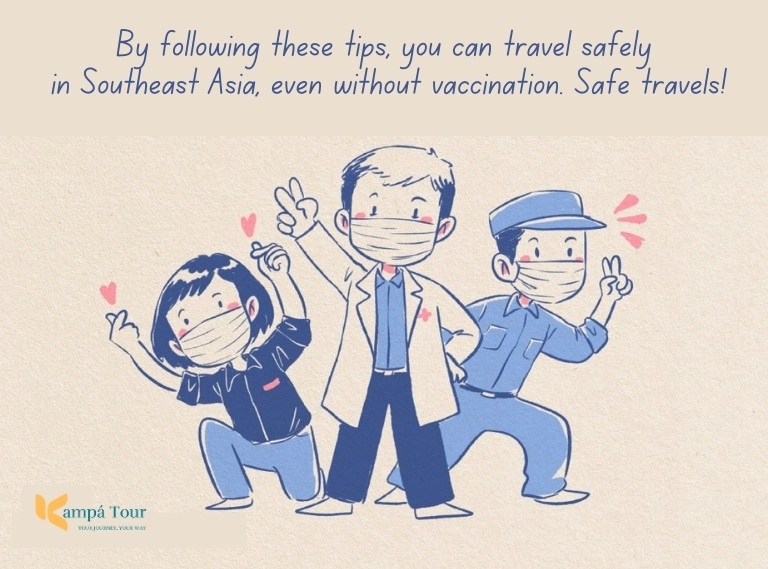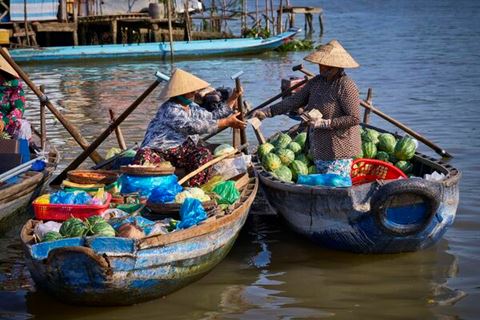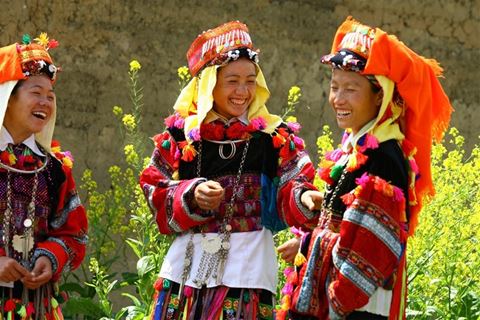- Destinations
- Travel Styles
- About Us
- Contacts
- Destinations
- Travel StylesTravel StylesBy ThemeBy Duration
- About UsOur Cutomer FeedbackGet Our BrochureFAQsTerms & Conditions
Southeast Asia, which includes Thailand, Vietnam, Laos, Cambodia, Brunei, Timor-Leste, Malaysia, Myanmar, the Philippines, and Singapore, is renowned for its rich culture, stunning natural landscapes, and diverse activities, making it a popular travel destination. To ensure a safe and healthy trip, it is crucial to get vaccinated to protect yourself from local diseases. Adhering to international health regulations and receiving the necessary vaccinations is highly recommended. This article, authored by the Head of the Department of Pharmacy, Pharmaceutical Technology Transfer, and Research Center at Phú Thọ College of Medicine and Pharmacy, provides valuable insights to help you prepare for your journey.
Entering Southeast Asia from the UK, USA, Canada, Sweden or Australia does not require any vaccines. Those who want to get vaccinated for increased protection are the target audience for this section.
In order to give the body time to build up the required immunity, it is advised that you finish the immunization schedule at least one month prior to your trip.
The main goal of getting vaccinated is to safeguard your health and ensure that you may travel with confidence and without burden. It is crucial that each person makes a calm decision based on their own requirements and preferences.

The World Health Organization recommends that travelers to Southeast Asia get vaccinated against hepatitis A, hepatitis B, typhoid, Japanese encephalitis, and malaria.
💊 Hepatitis A:
Hepatitis A is a viral infection that can be transmitted through contaminated food and water. To protect yourself against this disease, it is advisable to schedule an appointment with your doctor or travel health professional to receive the hepatitis A vaccine about 4 to 6 weeks before your trip. This will give you enough time to get vaccinated and allow your body to develop immunity.
💊 Hepatitis B:
Hepatitis B is a viral infection that affects the liver. The virus is typically transmitted through bodily fluids from an infected person. The hepatitis B vaccine for adults is usually given in a 3-dose schedule. The hepatitis B vaccine can also be combined with the hepatitis A vaccine if you need protection against both hepatitis A and B.
💊 Typhoid:
Typhoid fever is generally transmitted through contaminated water and food. There are now combined single-dose vaccines that protect against both typhoid and hepatitis A. You should get vaccinated about 4 to 6 weeks before your trip.
.jpg)
💊 Japanese Encephalitis:
Japanese encephalitis is not transmitted directly from person to person but is spread through mosquito bites. This viral infection can cause headaches and fever, and in some cases, it may lead to coma, encephalitis, or even death. You will need 2 doses of the Japanese encephalitis vaccine, administered 28 days apart.
💊 Malaria:
Malaria is a serious illness, and there is no vaccine to prevent it. Visitors are advised to follow an antimalarial treatment, wear long sleeves and pants, use insect repellent, and, if possible, sleep under a mosquito net. There are various types of antimalarial medications available. Consult your doctor to determine which one is best suited for you.

Currently, Southeast Asian countries are generally safe and are not experiencing major epidemic crises. No vaccinations are required, and this section is intended only to provide advice to those who wish to travel without vaccination.
To stay informed about the local health situation, it is recommended to consult reliable sources such as the World Health Organization (WHO) or the Centers for Disease Control and Prevention (CDC) websites, as well as reputable newspapers and news platforms.
If you are traveling without a vaccine, here are some recommendations to protect your health while traveling:

>>> Also read to prepare your trip to Vietnam:



 Private Tour
Private Tour Private Tour
Private Tour Essential
Essential Private Tour
Private Tour